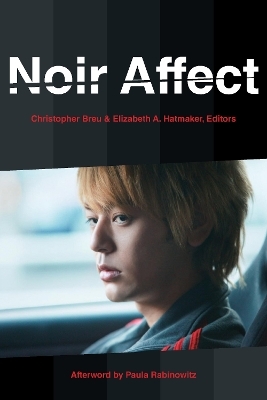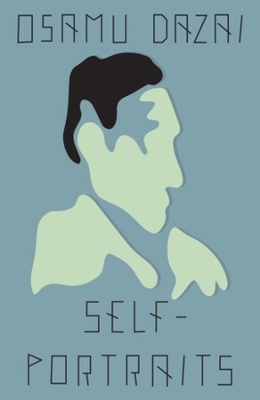
Noir Affect
Fordham University Press (Verlag)
978-0-8232-8766-6 (ISBN)
Noir Affect proposes a new understanding of noir as defined by negative affect. This new understanding emphasizes that noir is, first and foremost, an affective disposition rather than a specific cycle of films or novels associated with a given time period or national tradition. Instead, the essays in Noir Affect trace noir’s negativity as it manifests in different national contexts from the United States to Mexico, France, and Japan and in a range of different media, including films, novels, video games, and manga.
The forms of affect associated with noir are resolutely negative: These are narratives centered on loss, sadness, rage, shame, guilt, regret, anxiety, humiliation, resentment, resistance, and refusal. Moreover, noir often asks us to identify with those on the losing end of cultural narratives, especially the criminal, the lost, the compromised, the haunted, the unlucky, the cast-aside, and the erotically “perverse,” including those whose greatest erotic attachment is to death. Drawing on contemporary work in affect theory, while also re-orienting some of its core assumptions to address the resolutely negative affects narrated by noir, Noir Affect is invested in thinking through the material, bodily, social, and political–economic impact of the various forms noir affect takes.
If much affect theory asks us to consider affect as a space of possibility and becoming, Noir Affect asks us to consider affect as also a site of repetition, dissolution, redundancy, unmaking, and decay. It also asks us to consider the way in which the affective dimensions of noir enable the staging of various forms of social antagonism, including those associated with racial, gendered, sexual, and economic inequality. Featuring an Afterword by the celebrated noir scholar Paula Rabinowitz and essays by an array of leading scholars, Noir Affect aims to fundamentally re-orient our understanding of noir.
Contributors: Alexander Dunst, Sean Grattan, Peter Hitchcock, Justus Nieland, Andrew Pepper, Ignacio Sánchez Prado, Brian Rejack, Pamela Thoma, Kirin Wachter-Grene
Christopher Breu (he/they) is Professor of English at Illinois State University. He is the author of Insistence of the Material: Literature in the Age of Biopolitics and Hard-Boiled Masculinities. He is also co-editor (with Elizabeth A. Hatmaker) of Noir Affect (Fordham, 2020). Elizabeth A. Hatmaker was a poet, theorist, and teacher. She was instructional assistant professor at Illinois State University. She was the author of two books of poetry, Infrastructures (2015) and Girl in Two Pieces (2009). She passed away in 2015 due to complications from ALS. Paula Rabinowitz is Professor Emerita of English at the University of Minnesota and serves as editor-in- chief of the Oxford Research Encyclopedia of Literature. Her publications include numerous essays and books on mid-twentieth-century American culture, including Black and White and Noir: America’s Pulp Modernism (2002) and the prize-winning American Pulp: How Paperbacks Brought Modernism to Main Street (2014). She is currently working on a collection of essays titled “Into the Image” and a double biography of two fathers, “Cold War Dads: Family Secrets and the National Security State.” She lives in Queens, New York. Christopher Breu (he/they) is Professor of English at Illinois State University. He is the author of Insistence of the Material: Literature in the Age of Biopolitics and Hard-Boiled Masculinities. He is also co-editor (with Elizabeth A. Hatmaker) of Noir Affect (Fordham, 2020). Alexander Dunst is assistant professor of American Studies at the University of Paderborn. His research and teaching focus on twentieth-century cultural history, the digital humanities, and contemporary visual narrative. He is the author of Madness in Cold War America (2016) and is currently writing a book on the rise of the graphic novel. Sean Grattan is lecturer of American literature at the University of Kent. He is the author of Hope Isn’t Stupid: Utopian Affects in Contemporary American Literature (2017) and coeditor (with Christian Haines) of the special issue on “What Comes After the Subject?,” Cultural Critique 96 (Spring 2017). Elizabeth A. Hatmaker was a poet, theorist, and teacher. She was instructional assistant professor at Illinois State University. She was the author of two books of poetry, Infrastructures (2015) and Girl in Two Pieces (2009). She passed away in 2015 due to complications from ALS. Peter Hitchcock is professor of English at the CUNY Graduate Center and Baruch College of the City University of New York. His books include Dialogics of the Oppressed (1992); Oscillate Wildly: Space, Body, and Spirit of Millennial Materialism (1999); Imaginary States: Studies in Cultural Transnationalism (2003); The Long Space: Transnationalism and Postcolonial Form (2009); The New Public Intellectual: Politics, Theory, and the Public Sphere (2016; coedited with Jeffrey R. Di Leo); Labor in Culture, or, Worker of the World(s) (2017); and, most recently, The Debt Age (2018; coedited with Jeffrey R. Di Leo and Sophia McClennen). Justus Nieland is professor of English at Michigan State University, where he teaches in the Film Studies Program. He is the author of Feeling Modern: The Eccentricities of Public Life (2008), David Lynch (2012), Happiness by Design: Modernism and Media in the Eames Era (2020), and Film Noir: Hard-Boiled Modernity and the Cultures of Globalization (2009), cowritten with Jennifer Fay. He is also coeditor of the Contemporary Film Directors book series at the University of Illinois Press. Andrew Pepper is senior lecturer in English at Queen’s University Belfast. He is the author of Unwilling Executioner: Crime Fiction and the State (2016) and The Contemporary American Crime Novel: Race, Ethnicity, Gender, Class (2000) and the coeditor of Globalization and the State in Contemporary American Crime Fiction (Palgrave 2016). He is also a coeditor of the forthcoming Routledge Companion to Crime Fiction. He is also the author of a series of crime novels set in nineteenth-century Britain and Ireland, including The Last Days of Newgate (2006) and Bloody Winter (2011). Brian Rejack is associate professor in the Department of English at Illinois State University. He is the coeditor, with Michael Theune, of Keats’s Negative Capability: New Origins and Afterlives (2019). He is also the author of “Toward a Virtual Reenactment of History: Video Games and the Recreation of the Past,” published in Rethinking History (2007). Ignacio Sánchez Prado is Jarvis Thurston and Mona van Duyn Professor in the Humanities at Washington University in St. Louis. He is the author of Strategic Occidentalism: On Mexican Fiction and The Neoliberal World Market and the Question of World Literature (2018) and editor of Mexican Literature in Theory and Pierre Bourdieu in Hispanic Literature and Culture (2018). His work focuses on the relationship between cultural institutions and aesthetics in Mexico and he has published over ninety articles and book chapters on questions of Mexican literature and cinema, world literature and cultural theory. Pamela Thoma is associate professor of English and the director of the Program in Women’s, Gender, and Sexuality Studies at Washington State University. She specializes in Asian American literary and cultural studies and feminist media studies. She is the author of Asian American Women’s Popular Literature: Feminizing Genres and Neoliberal Belonging (2014) and editor of a forthcoming volume on the fiction of Karen Tei Yamashita. Her essays have been published in Contemporary Women’s Writing (2014), Feminist Media Studies (2009), and Gendering the Recession: Media and Culture in an Age of Austerity (2014), edited by Diane Negra and Yvonne Tasker. Kirin Wachter-Grene is assistant professor of Liberal Arts at the School of the Art Institute of Chicago. Her work focuses on African American literature and gender and sexuality studies and has been published in African American Review, The Black Scholar, Callaloo, Feminist Formations, Legacy: A Journal of American Women Writers, and more. She is guest editor of At the Limits of Desire: Black Radical Pleasure, a special issue of The Black Scholar, and is currently working on a book on Samuel R. Delany and transgressive African American literature.
Preface | vii
Introduction: Dark Passages
Christopher Breu and Elizabeth A. Hatmaker | 1
1. Toward Alphaville: Noir, Midcentury Communication, and the Management of Affect
Justus Nieland | 29
2. Public Violence as Private Pathology: Noir Affect in The End of a Primitive
Christopher Breu | 59
3. Cold Kink: Race and Sex in the African American Underworld
Kirin Wachter-Grene | 78
4. Noir Pedagogy: The Problem of Student Masochism in the Classroom Economy
Elizabeth A. Hatmaker | 99
5. The Shadows of the Twilight World: Beebo Brinker and the Circulation of Affect
Sean Grattan | 122
6. Peripheral Noir, Mediation, and Capitalism: Noir Form, Noir Mediascape, Sociological Noir
Ignacio M. Sánchez Prado | 137
7. Cyborg Affect and the Power of the Posthuman in the Ghost in the Shell Franchise
Peter Hitchcock | 156
8. Playing with Negativity: Max Payne, Neoliberal Collapse, and the Noir Video Game
Brian Rejack | 178
9. Chick Noir: Surveilling Femininity and the Affects of Loss in Gone Girl
Pamela Thoma | 197
10. Surplus Feelings: Neoliberal Noir and the Affective Economy of Debt
Alexander Dunst | 222
11. Capitalism as Affective Atmosphere: The Noir Worlds of Massimo Carlotto
Andrew Pepper | 241
Afterword: Melodrama, Noir’s Kid Sister, or Crying in Trump’s America
Paula Rabinowitz | 261
List of Contributors | 275
Index | 279
| Erscheinungsdatum | 18.05.2020 |
|---|---|
| Co-Autor | Christopher Breu, Alexander Dunst |
| Nachwort | Paula Rabinowitz |
| Zusatzinfo | 11 |
| Verlagsort | New York |
| Sprache | englisch |
| Maße | 152 x 229 mm |
| Themenwelt | Kunst / Musik / Theater ► Film / TV |
| Geisteswissenschaften ► Sprach- / Literaturwissenschaft ► Anglistik / Amerikanistik | |
| Geisteswissenschaften ► Sprach- / Literaturwissenschaft ► Literaturwissenschaft | |
| Sozialwissenschaften ► Kommunikation / Medien ► Medienwissenschaft | |
| Sozialwissenschaften ► Politik / Verwaltung ► Politische Theorie | |
| ISBN-10 | 0-8232-8766-1 / 0823287661 |
| ISBN-13 | 978-0-8232-8766-6 / 9780823287666 |
| Zustand | Neuware |
| Haben Sie eine Frage zum Produkt? |
aus dem Bereich


